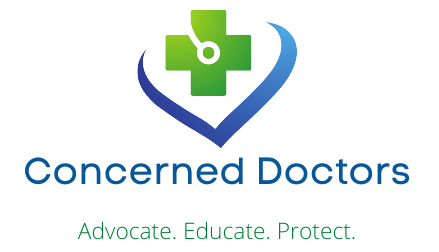Listen live: https://streamdb7web.securenetsystems.net/ce/TALKLOUD&
Most individuals thought the public health department is something that restaurants and medical facilities dealt with certainly not something that could coercively alter the rights of an individual to move and breathe. Stories of ‘Typhoid Mary’ with her capture and quarantine were just extreme examples of fear and overreach. Things like that happened in the past but could never occur in a modern society with established human rights and true ‘science’ as a guide. In the matter of days in 2020, a new villain, COVID, enters the picture and just as quickly a ‘hero’, the unelected public health official.
This unelected bureaucrat, whose name prior to the crisis was unknown, now possessed an almost unlimited power to direct the citizens every movement but even to dictate what be applied to their face and mouth while doing it and injected into one’s body to be able to buy and sell. Given this type of power, one would expect a minimum level of accountability in a democratic form of government. In local and state governments this accountability was and continues to be absent. Whether intentionally vague in their creation or underestimating the power these health czars might grab, the local and state regulations were deficient in oversight, in scope, and in limitations. Interestingly, these bureaucrats do have a code of ethics ascribed by their professional society the American Public Health Association or APHA. This code includes a ‘Guidance for Ethical Analysis’ of interventions: (taken directly from Public Health Code of Ethics)
Permissibility: “Would the action being considered be ethically wrong even if it were to have a good outcome?”
Respect: “Would the proposed action be demeaning or disrespectful to individuals and communities even if it benefited their health?
Reciprocity: “Have we done what is reasonable to offset the potential harms and losses that the proposed action imposes on individuals and communities?
Effectiveness: “Is it reasonable to expect, based on best available evidence and past experience, that the proposed action would achieve its stated health goals?”
Proportionality: “Would the proposed action demonstrate that public health practitioners are using their power and authority judiciously and with humility?”
Accountability and Transparency: “Would the proposed action withstand close ethical scrutiny and be justified by valid reasons that the general public will understand?”
Public Participation: “In deciding on a proposed action, have all potentially affected stakeholders had a meaningful opportunity to participate. If some are to be deliberately excluded from decision making, is there an ethical justification for doing so?”
Responsible Use of Scarce Resources: “Would the proposed action demonstrate good stewardship and deserve the trust that the public has invested in public health practitioners?”
Did our public health authorities consult their ethical analysis framework before crafting their directives and response to COVID-19? At a minimum regarding Proportionality, the answer is self-evident. In fact, in every domain, the public health authority’s response was, well, authoritarian. It is incumbent on our legislators to address public health overreach; instituting restraints on their power and requirements to follow their own code of ethics when intervening in a free society.
Our guest today is Dr. Cherie Johnson DC CAc CFMP. Cherie will be discussing the hypothalamic-pituitary-adrenal axis and how it contributes to susceptibility and severe COVID-19, post-acute covid sequela, and the immune systems fitness in general.
See references below:
1. COVID 19, hypothalamic-pituitary-adrenal axis and clinical implications : Endocrine 2020 doi.org/10.1007/s12020-020-02325-1
2. Diet induced hypothalamic dysfunction and metabolic disease and the therapeutic potential of polyphenols: Molecular Metabolism 27 2019
3. The Impact of Covid-19 viral infection on the hypothalamic-Pituitary-Adrenal Axis: endocrine Practice 27 (2021) doi.org/10.1016/j.eprac.2020.10.014
4. COVID -19 and Neurological Impairment: Hypothalamic circuits and Beyond : Viruses 2021 doi.org/10.3390/v13030498
5. Culinary Herbs and Spices: their bioactive Properties, the Contribution of Polyphenols and the Challenges in Deducing Their True Health benefits: International Journal of Molecular Sciences 2014 doi:10.3390/ijims151019183
Dr. Cherie Johnson’s podcast is “The Common Sense Doctor” Found on anchor app, apple, and spotify.
